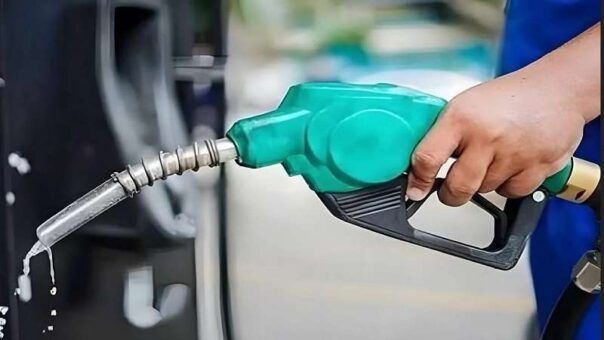Pakistan’s petroleum prices may increase further as the government is likely to withdraw the sales tax exemption on the supply of petroleum oil lubricants (POL) products.
The Federal Board of Revenue (FBR), the apex tax collecting agency, is facing a shortfall for the current fiscal year. The levy of 18 percent sales tax may help the government raise significant revenue from the supply of POL products.
READ MORE: Business community condemns increase in petroleum prices ahead of Eid in Pakistan
On April 15, the government announced an increase of Rs10 per liter in petrol prices ahead of Eid-ul-Fitr, a Muslim festival celebrated worldwide. This decision has sparked outrage among the people, particularly the poor masses who are already struggling to make ends meet due to the ongoing economic crisis.
According to the Finance Division, the increase in petroleum prices in the international market and exchange rate variation led to the revision of petrol prices. Pakistan is a net importer of petroleum products, and any change in exchange rates and international oil prices can impact domestic prices.
READ MORE: Pakistan’s economy faces potential negative growth in FY23, warns FPCCI
The new price of petrol is now Rs282 per liter, effective from April 16, 2023, up from the previous price of Rs272 per liter. The price of kerosene has also increased by Rs5.78 to Rs186.07 per liter from Rs180.29. However, the prices of High Speed Diesel (HSD) and Light Diesel Oil (LDO) have remained unchanged at Rs293 and Rs174.78, respectively.
The timing of the increase in petrol prices just ahead of Eid-ul-Fitr has caused concern among the people. The festival is an important occasion for Muslims to celebrate with their families and loved ones. The increased prices will make it difficult for people to travel and buy essential commodities during the festive season.
READ MORE: Cross-stuffing of Afghan, Uzbek cargo at Karachi Port hailed by Pak-Afghan Chamber
The government’s decision to hike the prices of those fuels that directly impact the poor masses has come under criticism from various quarters. The poor and working-class people who are already struggling to make ends meet will now have to bear the brunt of this decision.
However, the government has assured that it is working on a scheme to provide petroleum products at subsidized rates to lower-income groups. The Minister of State for Petroleum, Musadik Malik, recently stated that various suggestions are under consideration, including using the Benazir Income Support Program (BISP) network, issuing specific subsidy cards, or generating a one-time password (OTP) for eligible citizens’ ease.
OICCI expresses concerns over threats to business continuity in Pakistan’s economy
In conclusion, the recent increase in petrol prices in Pakistan has caused concern among the people, particularly the poor masses. The government’s decision to hike prices just ahead of Eid-ul-Fitr has come under criticism, and it is working on a scheme to provide petroleum products at subsidized rates to lower-income groups. The expected withdrawal of sales tax exemption may further increase the prices of petroleum products.
